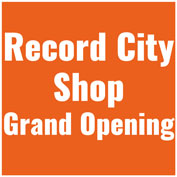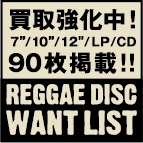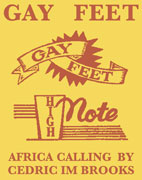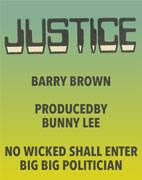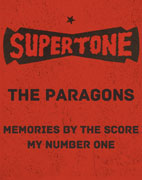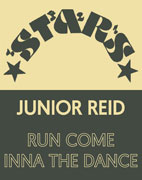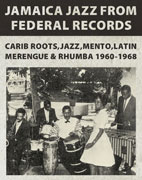Aquarius Text by Harry Hawks
Herman Chin Loy has somehow remained a relatively unsung name in the history of Jamaican music although the innovative music on his Aquarius and Scorpio record labels has proved more significant and has resonated far further than that of many better known producers...
Aquarius
| Founded | 1969 |
| Place of Establishment | Halfway Tree Jamaica |
| Main Studio(s) | Aquarius Randys |
| Founder | Herman Chin Loy |
| Producer(s) | |
| Engineer(s) | Calvin Robertson Clive Hunt Harman Chin Roy Karl Pitterson Mervin Williams Steven Stanley Willie Lindo |
| Related Artist(s) | |
| Related Label(s) |
Phil Chen and the Chung brothers, Geoffrey(Geoffrey Chung) and Michael, were hugely influential musicians and Vincent and Clive Chin at Randys Record Shop and Studio 17, the Hookim brothers, Ernest, Jo Jo(Joseph Hookim), Kenneth & Paulie at Channel One, Leslie Kong at Beverleys on Orange Street, Byron Lee taking care of business with Dynamic Sounds and musically with The Dragonaires and Justin 'Phillip' Yap(Justin Yap)'s legendary Top Deck and Tuneico labels were all vital creative and entrepreneurial forces within the music. Herman Chin Loy's Aquarius Record Shops, label and recording studio are also an integral part of this distinguished roll call of Chinese Jamaican musical and commercial achievement.
"Herman believes his 25% African heritage has created this deep rooted understanding of Jamaican music and beat. He attributes his business acumen to his 75% Chinese blood." Cordell Braham
Herman Chin Loy was born 11th July 1948 in the peaceful rural district of Trelawny. He moved to Clarendon and eventually to Kingston where he settled with his family. In the early sixties he opened his first record shop, named One Stop, in the heart of downtown Kingston at 125 King Street with Neville Foo-Loy. Neville was an old friend of Derrick Harriott's from Excelsior High School and, when Herman moved on to KGs in the Half Way Tree district in 1966, the pair handed over the King Street premises to Derrick Harriott and One Stop became Derrick's One Stop.
"I wanted to play as a deejay and I left my record store and went to work for KG's. He had a disco round the back called the Lotus A Go Go and I wanted to spin the music. So I started disc jockeying and selling records for KG's. I'm not blowing my own trumpet but I was recognised in the industry as the best record salesman." Herman Chin Loy
The top salesman in KG's Record Shop was also fast becoming one of the prime musical movers on the Kingston scene through his deejay residencies at the Lotus and Spinning Wheel discotheques and deejaying live for The Inner Circle and Now Generation bands. Herman also started to produce records and in 1969 he enjoyed his earliest hits, 'Shanghai' and 'African Zulu', with Lloyd Charmers. Musicians including Aston Familyman Barrett, Alva 'Reggie' Lewis and Glen 'Capo' Adams(Glen Adams) began to regularly come to Herman.
"They would tell me about the rhythms they had. I'd buy a cut of the rhythm and put melodies on them."
Herman Chin Loy
Herman not only added melodies but also his very own deejay interjections and from the outset his productions were characterised by his sense of adventure backed by a vision of exactly how the recordings should sound.
"I was trying to experiment with innovative sounds. Some time and some thought – music, melody, harmony and a bridge. Most productions are just spontaneous but my methodology was to put pen to paper. I feel comfortable in the studio and when the shop was doing well I'd go in and out of the studio depending on the vibes. I love to help people but the vibes have to be right... " Herman Chin Loy
Herman then left KG's and opened his Aquarius Record Shop next door to the Rainbow, later known as Skateland, in Half Way Tree. The importance of key record shops, such as the Aquarius store, in the history of Jamaican music is often overlooked; a good salesman was able to make or break a record.
"I'm giving the people what they want and helping the music along as well. Without the buyer there's nothing but it's not about the money. It's about pleasing the customers and the service you give to the people." Herman Chin Loy
To give his productions an enigmatic and mysterious feel Herman would credit his instrumental releases with the pseudonym 'Augustus Pablo' a name Horace Swaby would recall that Herman had found in a Mexican magazine. This slight, quiet youth adopted the name as his own and Horace Swaby became Augustus Pablo; his music would embody all of the enigma and intangible mystery that Herman had originally intended the 'Augustus Pablo' name to convey:
"Pablo using the name was never a problem." Herman Chin Loy
Herman first met Horace Swaby standing in the Aquarius Record Shop in 1971 holding a melodica, an instrument regarded as little more than a child's plaything, which had been lent to him by the daughter of a family friend. Herman asked Horace if he could play it and was so moved by the music that he immediately booked studio time. At Randys Studio 17 the following week Herman and Horace created 'Iggy Iggy', a version to The Heptones' 'Why Did You Leave', and the duo established a sound and a style that would dominate reggae for years to come. This historic session broke all the existing rules, established an entirely new direction for Jamaican music and heralded the advent of a hugely influential musician.
Aquarius productions were always ahead of the times but Herman's only international hit production, 'Rain', was a traditional song by a traditional singer aimed straight at the mainstream. Herman sent the tape to England where the strings were added for its UK release on the Trojan label. Attractively arranged by Geoffrey Chung and beautifully sung by former Techniques Bruce Ruffin 'Rain' sold over 100,000 copies and reached Number 19 in the UK National Charts in the summer of 1971.
"...I became a little restless so when Herman suggested I record 'Rain' I thought 'Why not?' I'd found the song on the B-side of a Jose Feliciano record and thought it was a great song so I began performing it live with the Inner Circle... We went into the studio and recorded it. Anyway Herman sent the tape to Trojan and they had Tony King put all the strings and things on it. After that the record went on to become a big hit all over Europe..." Bruce Ruffin
Dennis Brown sung a version of Carole King's 'It's Too Late' for Herman in a similar sentimental style but his work with vocalists was usually more adventurous. Dennis Brown, backed by The Now Generation, gave one of his greatest ever performances for Herman's Aquarius label with 'Song My Mother Used To Sing'.
"Dennis Brown was a big singer. With the arrangement I wanted to bring in a kind of orchestra feel in terms of complementing the horn section with the rhythms..."Herman Chin Loy
Always on the alert for new trends Herman observed that many of his regular customers would come into his Half Way Tree store asking for dub records. So Herman went to Dynamic Sounds studio and mixed one of the first ever dub albums...
"'Aquarius Dub' was the first dub LP... I was selling records in the shop and people would come in asking for dub records. They were playing them on the sound systems on soft wax and I asked myself how can I get the same sort of music to sell? I did what I had to do and put it on record! I mixed it with the help of the engineer and the musicians. I instructed them to get the sound I wanted... Every dub album came after...
If a regular album cost four dollars I would sell the dub LP for six dollars. The price was not a problem as they'd have to pay much more for an acetate so it was cheaper. But after that everyone started to put out dub. When I went to Federal to cut the stamper the engineer said: 'What kind of foolishness is this?' but they put out their own dub LP later." Herman Chin Loy
'Aquarius Dub' included 'I Man', the first cut to Augustus Pablo's 'Cassava Piece' rhythm which was later used as the basis for Pablo's epochal 'King Tubbys Meet Rockers Uptown'. This seminal record was largely responsible for introducing the concept of dub to the world outside of Jamaica when Island Records released the seven inch record in London in 1975.
Not long after this Herman opened "the first twenty four track studio in the Caribbean" his Aquarius Recording Studio in Half Way but, unfortunately, he has never fully utilised his studio for his own powerful productions. Others immediately realised the potential of the Aquarius Recording Studio and Bunny Wailer recorded and mixed his seminal 'Blackheart Man' album there in August 1975. Herman's many business commitments invariably seemed to get in the way of production work and the studio was often used "to record commercials and other non reggae material." This was nothing to do with a lack of inspiration or interest on Herman's behalf...
"I have the vibes most of the time but I don't have the time. It's a crime... " Herman Chin Loy
Whenever Herman has found the time to come out from behind the shop counter and enter the recording studio the results have never been less than arresting. At the start of the dance hall era he produced Tiger's, "who used to work at the Aquarius store", first ever record 'Knock Three Times' for his Musicism label and he has also worked with Earl Sixteen, Terry Ganzie, Little Roy, Sugar Minott, George Nooks, Triston Palmer, Linval Thompson and many, many more. And, according to Herman himself, the best is yet to come...
"The history of the people speaks through the music. I'm trying to find truth. It's the most important thing for where there is no truth there is no justice. I have recordings that I like better than the ones I released! My favourite records have yet to be released... it's true." Herman Chin Loy
Sources:
Noel Hawks: Interviews with Herman Chin-Loy London UK/Miami USA 14th & 28th September 2004
Noel Hawks: Interview with Derrick Harriott London UK 22nd May 1998
Cordell Braham: Herman... Swing December 1971 to January 1972
Laurence Cane-Honeysett: Interview with Bruce Ruffin April 2001
Paul Coote, Noel Hawks, Dave Hendley & Chris Lane:
Interview with Augustus Pablo London 21st September 1996
Chris Lane: Interview with Herman Chin-Loy Kingston December 1973
Steve Milne: Kung Fu Reggae and the Chinese Connection (Part One) Full Watts Vol.2 No. 2
Date Added: Apr 26, 2013 / Date Updated: Oct 18, 2013
Copyright (C) 2024 Dub Store Sound Inc.





